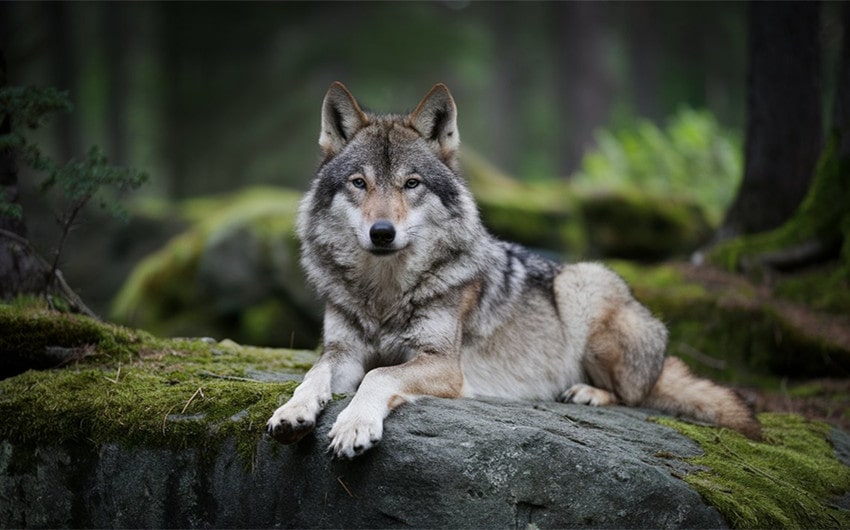26 Beautiful Native American Names Meaning Wolf and Their Spiritual Origins
Have you ever wondered what Native American names meaning wolf truly represent? In Native American culture, wolves are more than wild animals—they are symbols of loyalty, strength, and guidance. When you explore Native American names that mean “wolf,” you uncover a world where each name tells a story of courage, wisdom, and connection to nature. These names carry the spirit of the wolf: independent yet loyal, fierce yet compassionate. In this article, you’ll discover how different tribes and traditions express the wolf’s power through names that hold both spiritual and cultural meaning.
The Wolf’s Sacred Role in Native American Tradition
Across many Native American cultures, the wolf holds a position of deep reverence and wisdom. You’ll often find the wolf appearing in stories, ceremonies, and traditional teachings as a powerful symbol of loyalty, courage, and intelligence. For Native peoples, the wolf is not merely an animal—it represents family, instinct, and harmony within the natural world.
When you explore the meaning of Native American names connected to wolves, you begin to see how each name carries the essence of these values. The wolf embodies balance: strong yet gentle, independent yet devoted to the pack. It teaches lessons about trust, communication, and cooperation. In tribal legends, wolves are guides that lead travelers through unknown lands, both physical and spiritual.
For many Indigenous tribes, to be called “wolf” is not just a name—it’s an honor. It represents the strength of one’s spirit and the wisdom to navigate life’s challenges while remaining connected to the community.
Categories of Native American Names That Mean Wolf
Native American names meaning “wolf” vary widely across tribes, languages, and regions. Each tribe has its own way of expressing the wolf’s traits, whether through direct translation or through symbolic names inspired by its nature. These names can be grouped into several meaningful categories—by gender, by tribal origin, and by symbolic meaning.
Names by Gender
Male Wolf Names
Male names often carry meanings related to bravery, leadership, or protection. They are commonly given to those expected to grow into strong providers or defenders of their families and tribes.
-
Honiahaka (Cheyenne) – Meaning “Little Wolf.” This name conveys respect and affection, representing a brave young man destined for strength and wisdom.
-
Maikoh (Navajo) – Simply means “Wolf.” It reflects the animal’s straightforward, untamed essence and is often seen as a name for someone connected deeply with nature.
-
Amarok (Inuit) – Refers to the giant wolf of legend who hunts alone at night. In Inuit mythology, Amarok symbolizes the power of solitude and the danger of arrogance.
-
Lokwa (Hopi) – Means “Wolf” or “Grey Wolf.” It is a name tied to guardianship and balance between the human and spirit worlds.
These names aren’t just identifiers—they are blessings. When a boy is named after the wolf, he is symbolically gifted the wolf’s strength and endurance.
Female Wolf Names
Female names meaning “wolf” often highlight intuition, protection, and nurturing spirit—qualities that reflect the balance between strength and compassion.
-
Tala (Sioux) – Meaning “Wolf.” Perhaps the most well-known, it carries simplicity and power, representing a woman with independence and quiet courage.
-
Leloo (Chinook) – Also meaning “Wolf,” Leloo is melodic and soft but deeply strong, symbolizing a protector of loved ones.
-
Dibé Yazhi (Navajo) – Translates to “Little Sheep,” yet in some regional use, it can refer to a tender but strong connection with nature’s creatures, including the wolf’s spirit.
-
Maiyun (Cheyenne) – Means “Wolf Spirit.” A spiritual name that embodies grace, intuition, and the ability to lead from wisdom rather than dominance.
In traditional naming ceremonies, female wolf names often reflect the balance between fierce independence and the instinct to nurture, reminding you that strength and gentleness coexist.
Names by Tribal Origin
Each Native American tribe has its own language and worldview, shaping the way wolves are named and understood. Exploring names by tribal origin helps you appreciate the diversity and depth of Native cultures.
Navajo and Apache Tribes
In Navajo and Apache beliefs, wolves are spiritual allies that protect and guide the people. These tribes often associate the wolf with courage and transformation.
-
Maikoh (Navajo) – As mentioned, directly means “Wolf.” It’s both simple and deeply spiritual.
-
Kai (Navajo) – Sometimes used as a short name meaning “Willow Tree” or symbolizing the quiet wisdom of nature, often linked to wolf energy through strength and adaptability.
-
Shunkaha (Apache) – Means “Wolf,” representing bravery in solitude and loyalty to one’s kin.
Cherokee Tribe
For the Cherokee, wolves represent loyalty and family. The Cherokee Wolf Clan, Aniwaya, is one of the seven original clans and is known as the keeper of traditions and protectors of the tribe.
-
Waya – Means “Wolf.” Often used as a name for both men and women, symbolizing leadership and honor.
-
Ahote – Meaning “Restless One,” this name sometimes carries the essence of the wolf’s roaming spirit.
Cherokee wolf names emphasize community and responsibility, reminding you that even a lone wolf belongs to something greater—the tribe, the land, and the ancestors.
Sioux and Cheyenne Tribes
The Sioux and Cheyenne hold the wolf in high esteem as a spirit of endurance and warrior strength.
-
Tala (Sioux) – As noted, means “Wolf.” It is one of the most recognized Native names worldwide.
-
Honiahaka (Cheyenne) – “Little Wolf,” symbolizing humility and the idea that wisdom comes with patience and growth.
-
Shunkmanitu (Lakota Sioux) – Means “Dog-Like Creature” but often refers to a spirit wolf or supernatural being guiding souls in transition.
For these tribes, the wolf’s image intertwines with that of warriors and hunters who rely on intuition and discipline.
Inuit Tribes
The Arctic regions tell many tales of wolves through the legends of the Amarok, a giant wolf spirit.
-
Amarok (Inuit) – Unlike ordinary wolves, the Amarok hunts alone and preys on those foolish enough to wander at night. The name reflects immense power and independence.
In Inuit culture, to bear a wolf’s name is to honor the harsh yet majestic balance of life in the wild.
Names by Symbolic Meaning
The meanings behind wolf names go far beyond translation. Each name carries symbolism related to traits, elements of nature, or spiritual beliefs. You can group these names by their deeper significance.
Protector or Guardian Names
Names in this group highlight courage, defense, and strength—values central to many Native traditions.
-
Waya (Cherokee) – “Wolf,” a symbol of protection for the family or tribe.
-
Lokwa (Hopi) – “Grey Wolf,” representing the balance between protector and observer.
-
Maikoh (Navajo) – Symbol of courage and a steady spirit in the face of adversity.
These names embody the wolf’s instinct to protect the pack, urging the bearer to guard their loved ones and community.
Spiritual or Mystical Names
Some names reflect the wolf’s spiritual nature, linked to dreams, transformation, and the unseen world.
-
Maiyun (Cheyenne) – “Wolf Spirit,” a direct reference to the guardian of dreams and paths.
-
Shunkmanitu (Lakota Sioux) – A supernatural wolf-like being, associated with visions and journeys between worlds.
-
Amarok (Inuit) – The solitary hunter of the spirit realm, teaching respect for life and solitude.
These names are often given to those believed to have special insight or strong intuition—people who listen to the voice of the earth.
Nature-Linked Names
Many Native American names draw inspiration from the wolf’s natural environment—its connection to the moon, the forest, and the seasons.
-
Tala (Sioux) – A wolf often associated with the moon’s light and the stillness of the night.
-
Waya Honah (Cherokee) – “Howling Wolf,” capturing the voice of wilderness and connection between spirit and sky.
-
Lokwa (Hopi) – Reflecting harmony with nature and the cycles of life.
These names remind you that the wolf, like humanity, exists as part of the greater circle of life—interdependent, aware, and respectful of the natural order.







